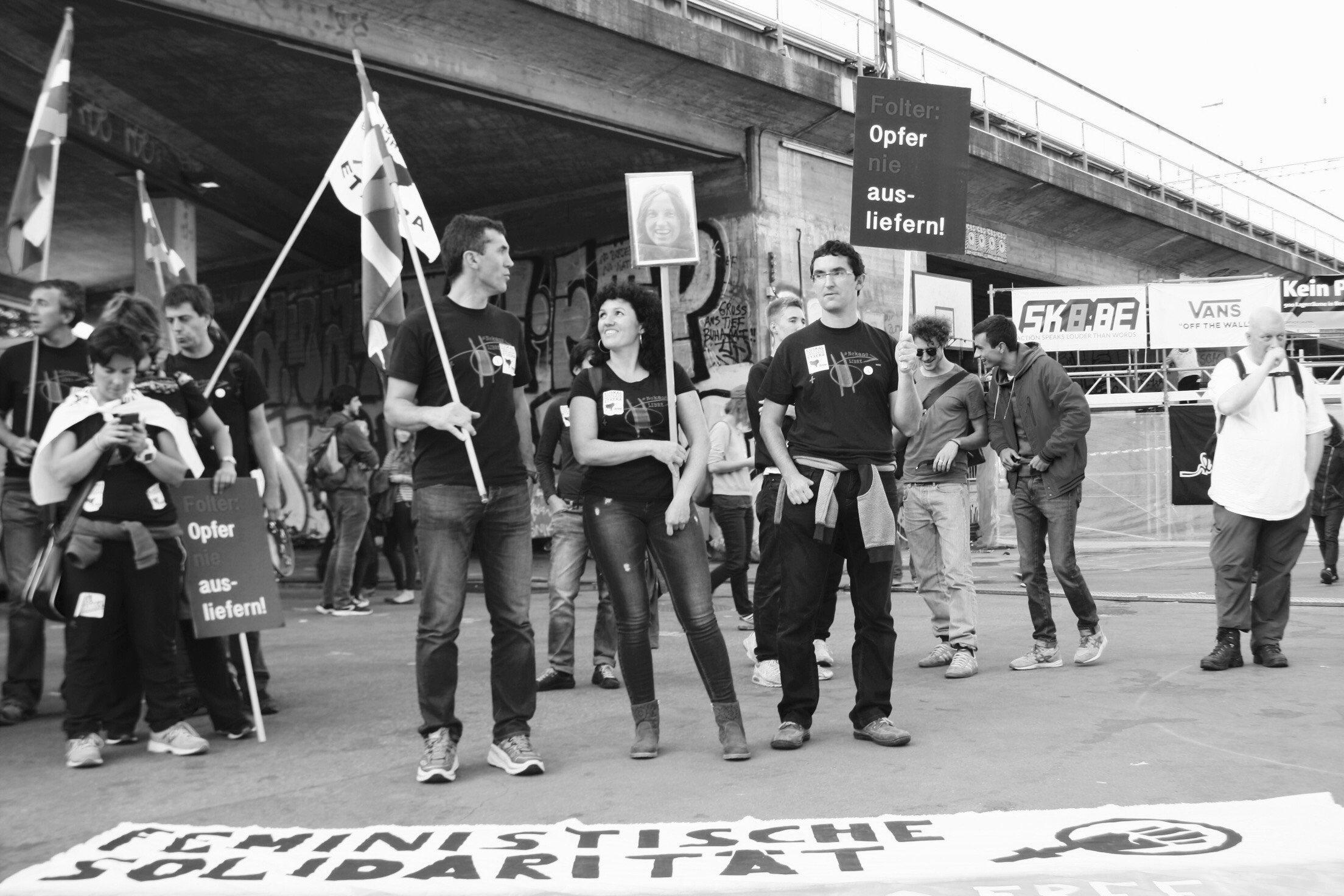Amnesty condemns Swiss extradition of ETA activist

The Swiss branch of Amnesty International has criticised Switzerland’s decision to extradite a woman to Spain convicted there of supporting the Basque separatist group ETA. The Swiss authorities had rejected her claim that she was tortured while in Spanish custody.
“It must be assumed that the confession used to condemn Nexane Txapartegi as a terrorist came under torture. The severe torture allegations were never effectively investigated by the Spanish judiciary,” the Swiss branch of Amnesty International said in a statement on Thursday.
Earlier in the day, Swiss justice authorities announced that they were extraditing Txapartegi to Spain after rejecting her claim she was tortured into confessing while in Spanish custody.
Swiss authorities arrested her in Zurich on April 16, 2016. She had been living under an assumed name in Switzerland since 2009. Txapartegi had fled Spain that year after a court sentenced her to six years and nine months in jail for supporting ETA, a sentence that was reduced this year to 3-1/2 years, Switzerland’s Federal Office of Justice said in a statement.
Spanish court documents said she had acted as an intermediary for the Basque separatist group and carried out various missions in Europe and South America. Txapartegi never appealed against the Spanish court’s judgements.
“The ETA activist could not credibly show that she was actually tortured in Spain,” the Federal Office of Justice said on Thursday.
‘Not valid’
But Amnesty rejects the justice ministry’s claim as “not valid”.
“Nekane Txapartegi filed for torture shortly after the arrest. However, the procedure has been delayed for several years, then discontinued,” said Denise Graf, a lawyer and asylum expert at Amnesty Switzerland.
It must be assumed that the Spanish authorities have thereby infringed the European Convention on Human Rights, she added.
Amnesty said Txapartegi was arrested by the Spanish Guardia Civil Police in 1999 and was interrogated for five days while held incommunicado. It said she was tortured and sexually abused, including having a plastic bag put over her head until she could no longer breathe, beaten, exposed to electric shocks, subjected to a mock execution, and raped. Amnesty International said her allegations were credible and documented her case in their 1999 Annual Report.
For the moment, Txapartegi has not been extradited to Spain as she has 30 days to appeal against the decision, which also hinges on her pending request for asylum in Switzerland, the justice office said.
ETA, which has killed more than 800 people over several decades and declared a permanent ceasefire six years ago, has been severely weakened in recent years after hundreds of its members, including its leader, were arrested and police seized several of its weapons stashes.
France’s Le Monde newspaper recently reported that ETA was set to announce plans to disarm and have scheduled a full handover of weapons for April 8. Several Basque political leaders said this was credible.

In compliance with the JTI standards
More: SWI swissinfo.ch certified by the Journalism Trust Initiative








You can find an overview of ongoing debates with our journalists here . Please join us!
If you want to start a conversation about a topic raised in this article or want to report factual errors, email us at english@swissinfo.ch.